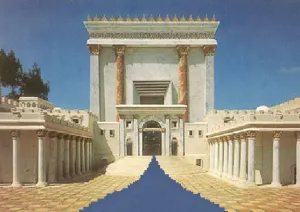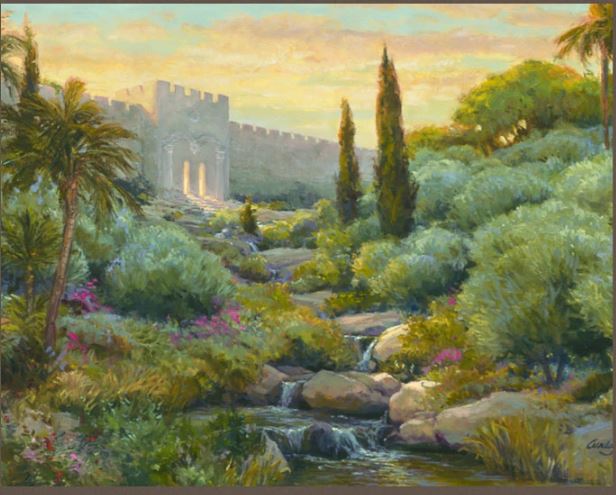To accompany your Come Follow Me study for October 24-30
In addition to reading the suggested chapters, you may enjoy
- Reading the related material from the Institute student manual at https://www.churchofjesuschrist.org/study/manual/old-testament-student-manual-kings-malachi/chapter-26?lang=eng and https://www.churchofjesuschrist.org/study/manual/old-testament-student-manual-kings-malachi/chapter-27?lang=eng
- Watching the 1 ½ minute video The Book of Mormon Gathers Scattered Israel (President Russell M. Nelson) https://www.youtube.com/watch?v=M2mZaS0rOAE
- Watching the video Come, Follow Me (Oct 24-30) – Ezekiel | Ezekiel and Them Dry Bones at https://www.youtube.com/watch?v=t77sSeqUAVk
- Watching the 4 minute video And The River Will Grow at https://www.youtube.com/watch?v=ATTKW5nDb_k
- Watching the 7 minute video Overview: Ezekiel 1-33 at https://www.youtube.com/watch?v=R-CIPu1nko8
- Watching the 7 minute video Overview: Ezekiel 34-48 at https://www.youtube.com/watch?v=SDeCWW_Bnyw
If you would enjoy seeing a Kahoot game related to this material which you could use for your own amusement or with your family or class, click here:
https://create.kahoot.it/share/ezekiel-1-3-33-34-36-37-47/85e715a1-f19a-4f94-beb8-239c8d848b49. (To use it with a group, after clicking on this link, you will need to log into Kahoot, creating a free account if you have not done so previously, then click on the blue “Start” button.)
Points to Ponder in Ezekiel 1-3; 33-34; 36-37; 47
1. What is the most important thing for us to remember about Ezekiel’s vision of the lion, man, ox, and eagle, and the wheel within a wheel?
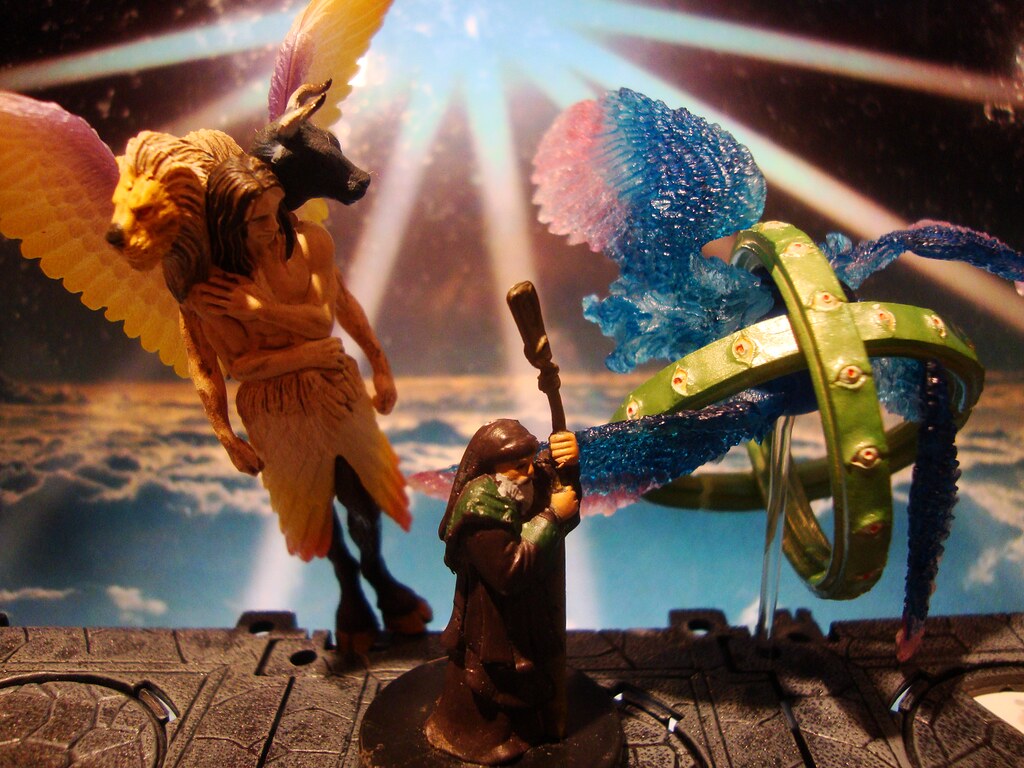
2. Why might the Lord have asked Ezekiel to eat the book He gave him in vision?
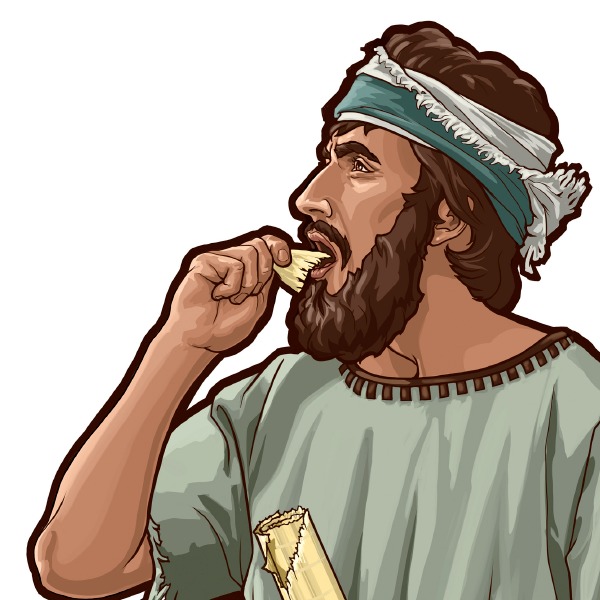
3. According to Ezekiel 33, which of the following individuals would be categorized as good and which as bad? Why?
- Zeezrom
- Lamoni
- Alma II
- Oliver Cowdery
- David Whitmer
- Martin Harris
- Thomas B. Marsh
- Orson Pratt
- W. W. Phelps
- Sidney Rigdon
- King David
- King Solomon
- King Saul
- The Apostle Paul

4. What points could you draw from this week’s reading in Ezekiel for inclusion in a talk or lesson about ministering?

5. What is a heart of flesh? (36:26) Is it a good thing or a bad thing?
6. Non-Latter-day Saints typically interpret Ezekiel 37:15-20 as referring to the future reunification of the kingdoms of Israel and Judah. Why do Latter-day Saints see it as a prophecy of the coming forth of the Book of Mormon?
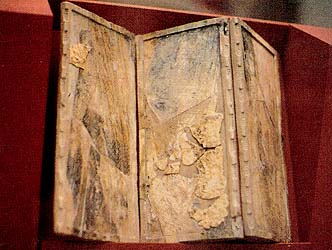
GIVE CHAPTER AND VERSE FOR EACH OF THE FOLLOWING:
7. Ezekiel sees the Lord at least twice.
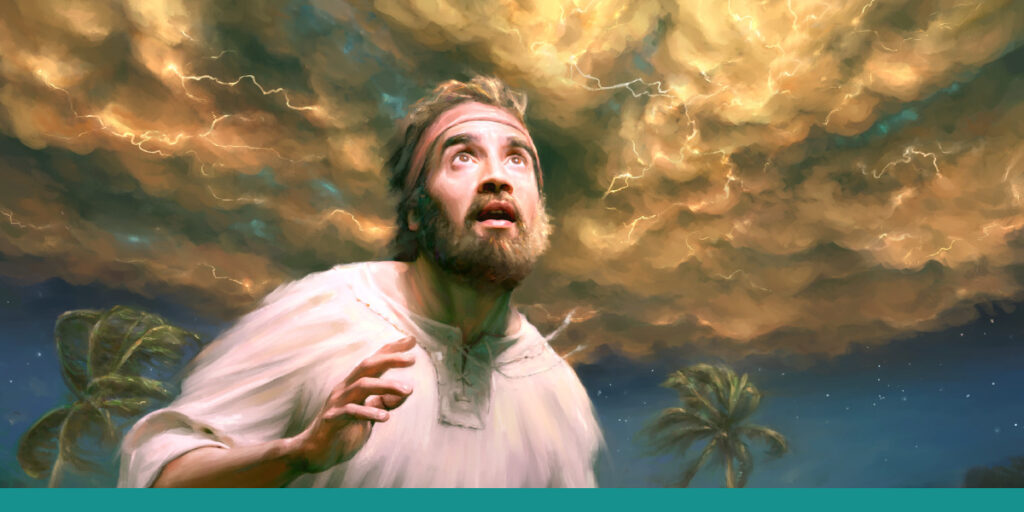
8. The word of God is sweet.

9. The day will come when Jesus Christ will personally serve as Israel’s king and shepherd.
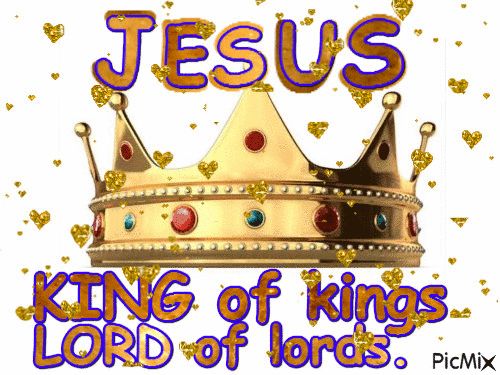
10. A passage quoted by President Spencer W. Kimball as he lamented that many who attended general conference would not afterwards follow the counsel they heard there.
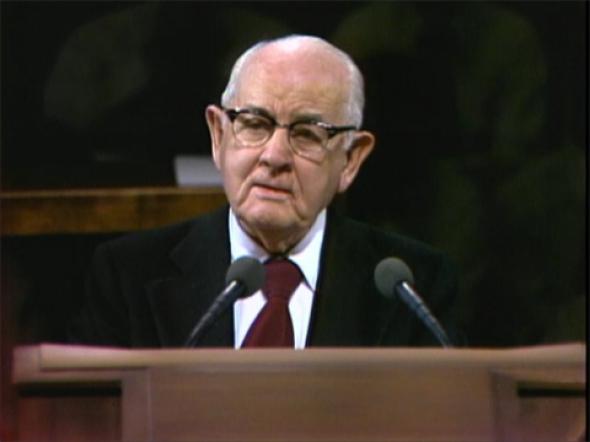
11. Prophecy of a literal physical resurrection.

12. Prophecy which may have been fulfilled in part by the LDS publication of a Quadruple Combination.
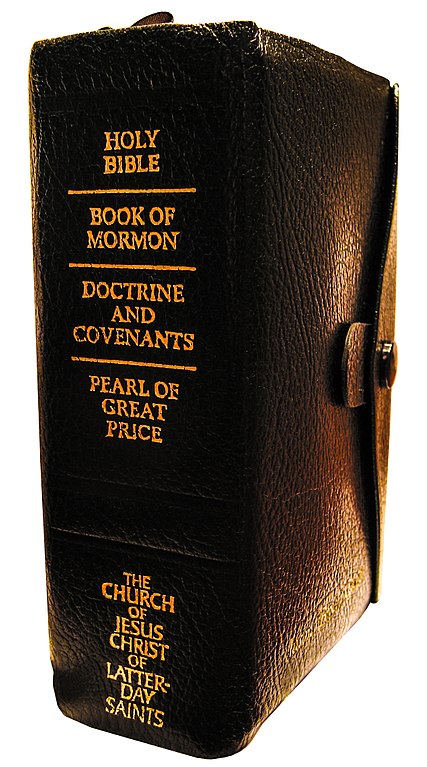
13. As the hymn Now Let Us Rejoice tells us, the day will come when the “earth will appear as the Garden of Eden.”

14. The temple provides healing blessings to all who avail themselves thereof.
Possible Answers to Points to Ponder in Ezekiel 1-3; 33-34; 36-37; 47
1. What is the most important thing for us to remember about Ezekiel’s vision of the lion, man, ox, and eagle, and the wheel within a wheel?
It is not important for us to understand or remember the details of Ezekiel’s vision, as the Lord has not revealed to us it’s meaning. What is important is to remember that Ezekiel, like prophets of all ages, did receive revelation from God, according to the needs of the time.
2. Why might the Lord have asked Ezekiel to eat the book He gave him in vision?
Perhaps to symbolize his internalizing and “digesting” its message. The Lord has used similar symbolism elsewhere, such as:
- 2 Nephi 32:3: Inviting us to “feast” upon the words of Christ.
- Psalms 119:103: “How sweet are thy words unto my taste! yea, sweeter than honey to my mouth!”
- Jeremiah 15:16: “Thy words were found, and I did eat them.”
- Deuteronomy 8:3: “Man doth not live by bread only, but by every word that proceedeth out of the mouth of the Lord.”
- Revelation 10:10: “And I took the little book out of the angel’s hand, and ate it up; and it was in my mouth sweet as honey.”
3. According to Ezekiel 33, which of the following individuals would be categorized as good and which as bad? Why?
The Lord’s emphasis, through Ezekiel, is that it’s how we end up which matters, not what we’ve done at earlier stages of our lives. Zeezrom, Lamoni, Alma II, Oliver Cowdery, Martin Harris, Thomas B. Marsh, Orson Pratt, W. W. Phelps, and the Apostle Paul all had some spiritual defects earlier in their lives, but all ended up repentant and faithful. On the other hand, David Whitmer and kings David, Saul, and Solomon all had great beginnings but ended up out of the Church or out of favor with the Lord and will be in a much less favorable position at judgment day than those previously listed.
4. What points could you draw from this week’s reading in Ezekiel for inclusion in a talk or lesson about ministering?
- 3:17-21; 33:6-8: As watchmen, we are responsible for warning those to whom we are sent. We will be responsible for their sins if we do not do so.
- 34:2: As shepherds, we are to feed the flock, not just use the “sheep” for our own convenience and pleasure.
- 34:4: We are to strengthen the weak, minister to the sick, attempt to fix that which is broken, and bring back that which is lost.
- 34:4: We are to use patience and persuasion, not force.
5. What is a heart of flesh? (36:26) Is it a good thing or a bad thing?
It is a good thing. It doesn’t mean that one who has a “heart of flesh” is interested in things “of the flesh,” but that he has a soft, pliable heart, receptive of God’s will, as opposed to those who are hard-hearted, or who have “stony hearts.”
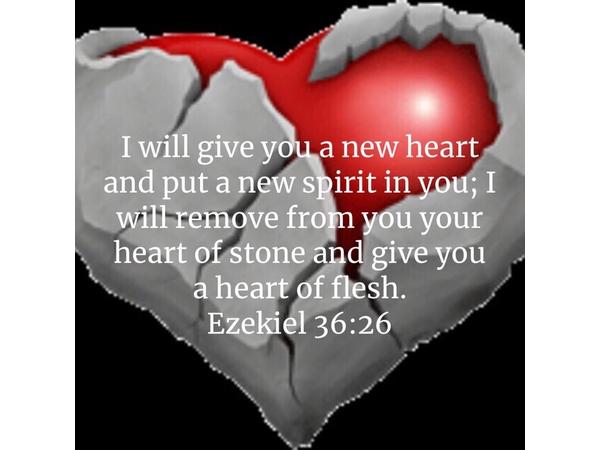
6. Non-Latter-day Saints typically interpret Ezekiel 37:15-20 as referring to the future reunification of the kingdoms of Israel and Judah. Why do Latter-day Saints see it as a prophecy of the coming forth of the Book of Mormon?
Part of the reason is that the Lord Himself refers to the Book of Mormon as the “stick of Ephraim” in D&C 27:5. The two interpretations are not mutually exclusive. The coming forth of the Book of Mormon, together with the testimony of the Bible, or stick of Judah, are fundamental to the latter-day gathering of spiritual Israel.
GIVE CHAPTER AND VERSE FOR EACH OF THE FOLLOWING:
7. Ezekiel sees the Lord at least twice.
- 1:26-28
- 3:23
8. The word of God is sweet.
3:3
9. The day will come when Jesus Christ will personally serve as Israel’s king and shepherd.
- 34:23-24
- 37:24-25
10. A passage quoted by President Spencer W. Kimball as he lamented that many who attended general conference would not afterwards follow the counsel they heard there.
33:31
11. Prophecy of a literal physical resurrection.
37:6, 12. While this is partially symbolic, referring to the House of Israel as dead bones, who need to be revived, it seems clear that the Lord is also speaking of a literal individual resurrection, in which he will open our graves, lay sinews and flesh upon us, cover us with skin, and put breath in us once again.
12. Prophecy which may have been fulfilled in part by the LDS publication of a Quadruple Combination.
37:17-20
13. As the hymn Now Let Us Rejoice tells us, the day will come when the “earth will appear as the Garden of Eden.”
36:35
14. The temple provides healing blessings to all who avail themselves thereof.
47:9
